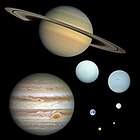Wikipedia editor
This is a Wiki pedia user page . Wiki pedia ,mirror site . Be aware that the page may be outdated and that the user whom this page is about may have no personal affiliation with any site other than Wiki pedia https://en.wiki pedia.org/wi ki/User:Lexington_Warner
My Userboxes
This user can program in Ruby
SQL This user uses SQL
My Userboxes part II
fan-3 This user thinks that Mech Commander
MSN
as a primary search engine.
This user contributes using a PDA
BIO This user's favourite subject is Biology
This user is interested in Fossils
About me Hello, my name is Lexington Warner (II) , a simple person who lives a simple life, has simple friends and loves simple things.
I haven't visited Wikipedia in a long long time, but, hopefully, I can keep up with the changes.
Favourite poem As we grow up,
we learn that even the one person that wasn't supposed to ever let you down...
probably will.
You will have your heart broken
probably more than once
and it's harder every time.
You'll break hearts too,
so remember how it felt when yours was broken.
You'll fight with your best friend.
You'll blame a new love for things an old one did.
You'll cry because time is passing too fast
and you'll eventually lose someone you love.
So take too many pictures,
laugh too much,
and love like you have never been hurt
because every sixty seconds you spend upset
is a minute of happiness you'll never get back.
Don’t be afraid that your life will end, be afraid that it will never begin.
~ Anonymous ~
Featured Article of the Day
Planets of the Solar System
A planet star nor a stellar remnant . The Solar System has eight (pictured) : four terrestrial planets , Mercury , Venus , Earth and Mars ; and four giant planets , Jupiter , Saturn , Uranus and Neptune . The term "planet" at first included the Sun , Moon and the five naked-eye planets that move across the background of the stars; they were seen as having associations with the gods. Copernicus theorized the Earth was a planet and, like the others, orbited the Sun. "Planet" came to include many objects, such as moons, within and beyond the Solar System. The International Astronomical Union in 2006 defined a planet in the Solar System to have cleared its neighborhood of other bodies , and that extrasolar planets should orbit stars and not be large enough to support deuterium fusion . Many planetary scientists, though, still apply the word "planet" more broadly, including dwarf planets , planetary-mass moons , rogue planets and brown dwarfs . (Full article...



